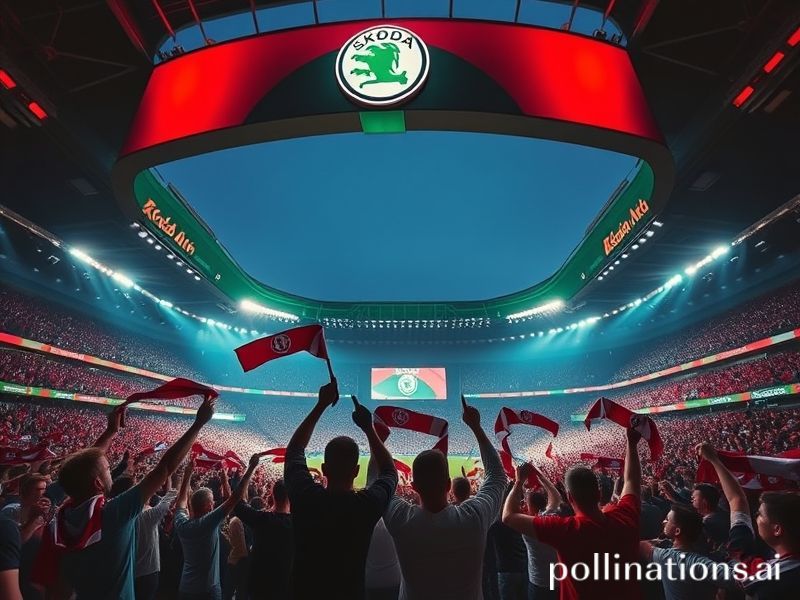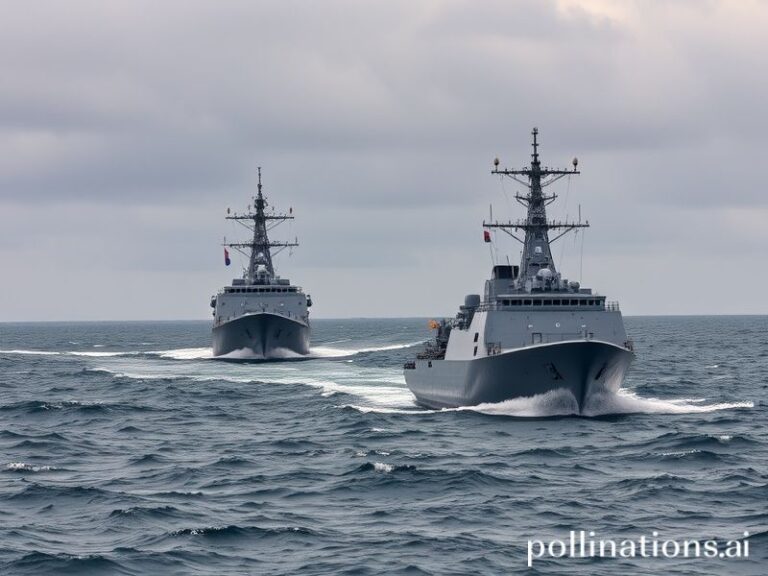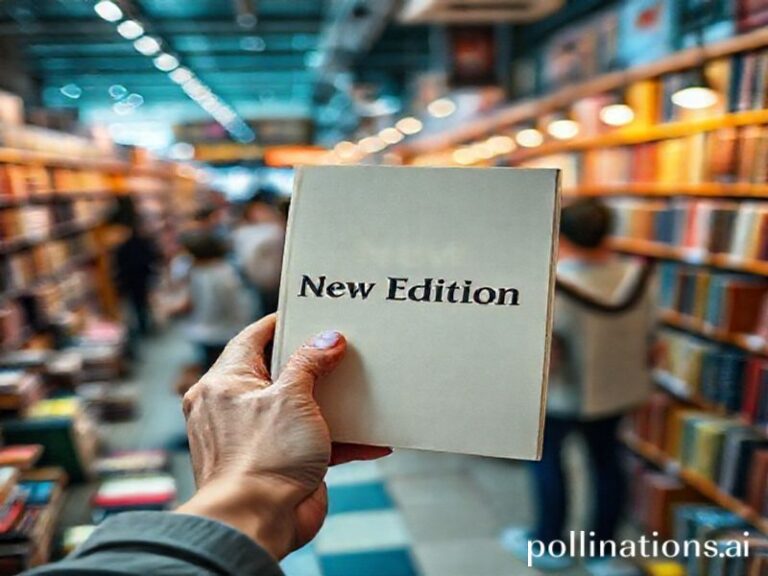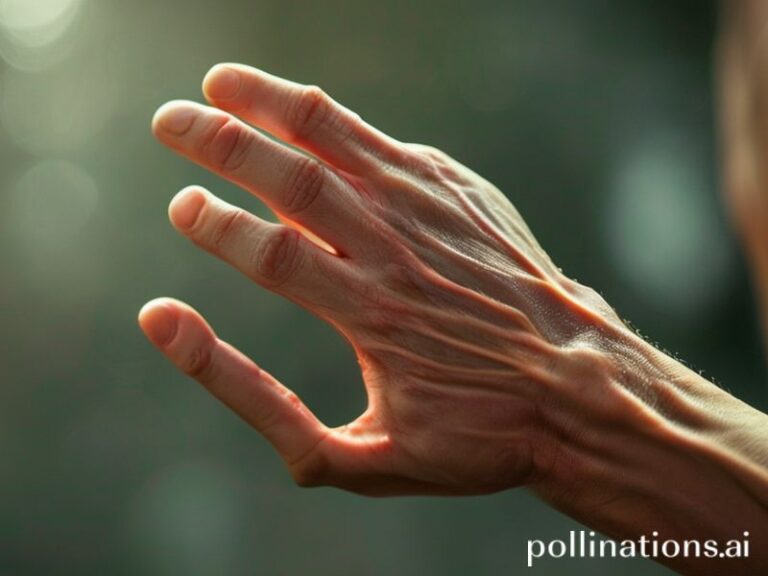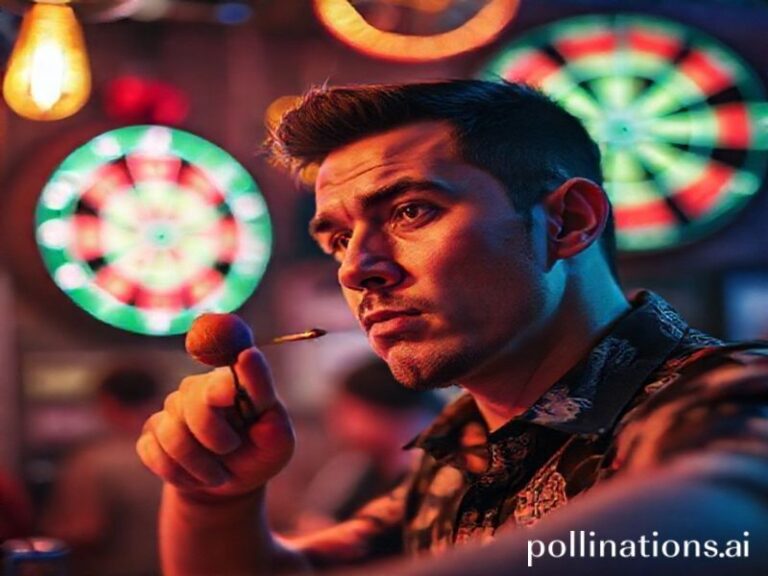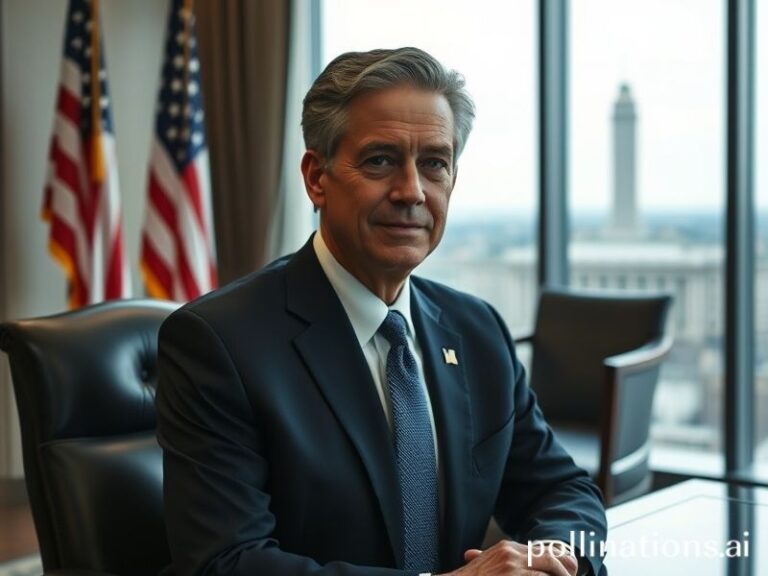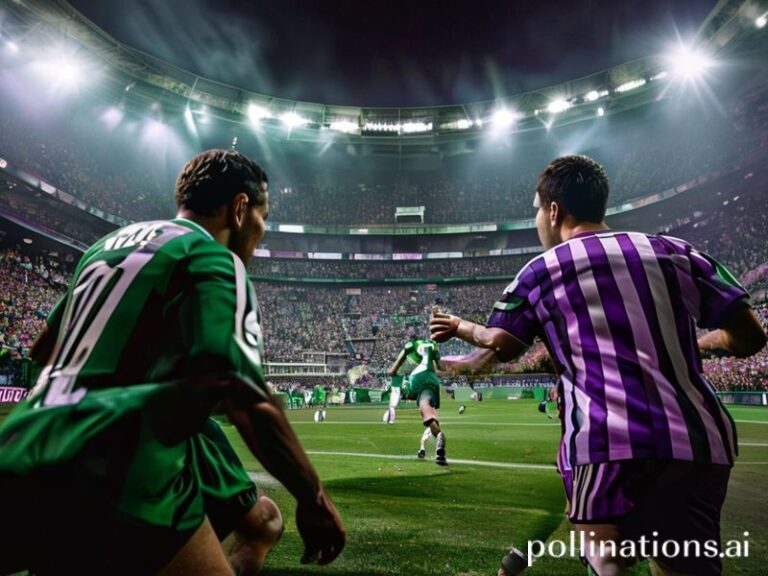Slavia Prague: Where Champions League Dreams Meet Geopolitical Nightmares (and Sells Tickets to Both)
Slavia Prague Doesn’t Just Play Football—It Sells Geopolitics by the Season Ticket
By Dave’s Locker Foreign Desk
PRAGUE—On paper, SK Slavia Praha is merely a football club with a fetching red-and-white kit and a stadium wedged between paneláks and craft-beer pubs. In practice, it is the most polite proxy war currently on offer in Central Europe, a place where Chinese energy conglomerates, Russian oligarchs, and EU subsidy auditors all get to wave tiny foam fingers from the same VIP box. If you ever wondered where the Cold War went to grab a pint and watch the Champions League qualifiers, the answer is Eden Arena, half-time, klobása in hand.
Slavia’s improbable rise from mid-table mediocrity to serial-title irritant coincided with the 2015 arrival of CEFC China Energy, a firm whose business model appeared to be “buy influence, forget to file accounts.” Overnight, the club acquired players whose transfer fees looked suspiciously like Belt-and-Road receipts. Every successful cross suddenly doubled as soft power, and every corner kick came with a Confucian subplot. When CEFC’s chairman vanished into Chinese detention—an occupational hazard for billionaires who fall off the approved storyline—the club pivoted to new patrons from the Sinobo Group, equally Beijing-adjacent but with better PowerPoint hygiene.
Cue the geopolitical halftime show. Washington fretted about 5G; Brussels fretted about state subsidies; Prague’s mayor simply fretted about parking. Meanwhile, Slavia’s ultras choreographed tifos that read “Respect China” in Comic Sans, proving that propaganda and graphic design remain star-crossed lovers. The irony, of course, is that Slavia’s greatest triumph came in the 2018-19 Europa League, where they dumped out Sevilla, a club literally sponsored by a Russian state oil firm that no one in Congress could pronounce. Somewhere, Henry Kissinger was updating his dating profile to include “enjoys long walks through contradictory alliances.”
The pandemic merely added absurdist garnish. With stadiums closed, Slavia’s board unveiled a “digital twin” of Eden Arena in the metaverse, where fans could pay cryptocurrency to watch polygonal footballers run around a pitch sponsored by a company that sells NFTs of other NFTs. Attendance in the virtual stand peaked at 3,200, which is still better than Sampdoria on a rainy Wednesday. UEFA, ever alert to new revenue streams, immediately launched an investigation into whether pixelated flares violated safety protocols.
All of which makes Slavia a perfect mirror for the global moment: a local institution inflated into an international billboard, then hastily rebranded before anyone can read the fine print. The squad now features Brazilians who learned Czech via Duolingo, a Nigerian striker who answers press questions in fluent Russian, and a Danish defender who spends press conferences politely reminding journalists that Greenland is not for sale. The dressing room reportedly holds eleven languages and one shared Spotify playlist titled “Songs to Dodge Sanctions To.”
Europeans like to claim football is the continent’s lingua franca, but Slavia suggests the dialect is now fully venture-capitalized. The club’s academy churns out teenagers who can hit a 30-yard volley and recite quarterly earnings guidance in three time zones. Scouts from the Gulf drop by to measure calf muscles and ESG scores, while hedge-fund analysts in Mayfair price the probability that tomorrow’s geopolitical crisis will hike the price of knee ligaments.
None of this has hurt the football. Slavia recently clinched its fifth league title in six years, prompting the sort of civic fireworks that feel obligatory yet oddly dutiful, like clapping at the end of a corporate town-hall. The trophy itself was carried onto the pitch by the Czech finance minister, a symbolic overlap that would raise eyebrows anywhere except post-communist Europe, where overlap is the national sport.
And so the cycle spins: titles attract investors, investors attract scrutiny, scrutiny attracts rebranding, rebranding attracts more titles. Somewhere in the middle, 20,000 actual humans still turn up to sing songs about medieval saints and 1990s rock bands, proving that even in the age of weaponized capital, people stubbornly insist on having feelings. The universe may be expanding, debt may be compounding, and democracy may be buffering, but on a crisp autumn night in Vršovice, a left-back can still thread a pass that makes the entire global supply chain feel briefly irrelevant.
Football, like diplomacy, is the art of pretending the stakes are mortal while secretly knowing everything resets next season. Slavia Prague has merely removed the pretense. The game ends, the anthem plays, the geopolitical commentators file their copy, and the stadium lights dim—only to be relit by a new logo, a new sponsor, and the same old hunger for something, anything, to matter. Until the next whistle, we are all Slavia fans now, clutching our artisanal klobása and hoping the algorithm spares us another group stage with Sheriff Tiraspol.

